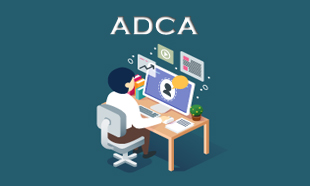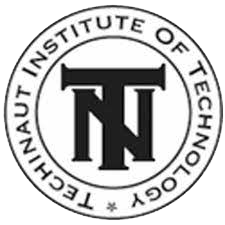253
The Advance Diploma in Computer Application (ADCA) course offered by Digital Binary Computer Institute, a franchise of Techinaut Institute of …
The Advance Diploma in Computer Application (ADCA) course offered by Digital Binary Computer Institute, a franchise of Techinaut Institute of Technology, is a comprehensive one-year program designed to equip students with fundamental knowledge and practical skills in various aspects of computing. Covering topics ranging from the basics of computers to advanced programming and internet technologies, the course provides a solid foundation for individuals aspiring to pursue careers in information technology. This article delves into the curriculum structure, key modules, and the significance of ADCA in shaping the future of aspiring IT professionals.
1. INTRODUCTION:
In the rapidly evolving landscape of information technology, proficiency in computer applications has become indispensable. Digital Binary Computer Institute, located in Almora, Uttarakhand, recognizes the growing demand for skilled professionals and offers the Advance Diploma in Computer Application (ADCA) course to bridge the gap between academic knowledge and industry requirements. As a Techinaut Institute of Technology franchise, it upholds quality education and practical training standards.
2. CURRICULUM STRUCTURE:
The ADCA course is meticulously crafted to provide a holistic understanding of various aspects of computer applications. The curriculum is divided into modules, each focusing on specific areas of study. The following are the key modules covered in the one-year duration: 2.1. Basics of Computer:
- Introduction to computers and their evolution
- Components of a computer system
- Input and output devices
- Storage devices and memory hierarchy
- Overview of computer software and hardware
- Understanding the significance of computers in modern society
- Ethical considerations in computer usage
- Impact of technology on various sectors
- Architecture of a computer system
- CPU, memory, and I/O organization
- Data representation and binary arithmetic
- Introduction to Boolean algebra and logic gates
- Fundamentals of operating systems
- Types of operating systems (e.g., Windows, Linux, macOS)
- File management and directory structures
- Process management and multitasking
- Introduction to Microsoft Word
- Document creation, formatting, and editing
- Working with tables, graphics, and templates
- Mail merge and collaboration features
- Overview of Microsoft Excel
- Data entry and manipulation
- Formulas, functions, and calculations
- Data analysis and visualization tools
- Introduction to Microsoft PowerPoint
- Creating, editing, and formatting slides
- Adding multimedia elements and animations
- Delivering effective presentations
- Role of information technology in shaping society
- Digital literacy and access to technology
- Cybersecurity awareness and best practices
- Evolution and growth of the Internet
- Internet protocols and communication techniques
- Web browsers and search engines
- Internet security and privacy concerns
- Understanding computer networks and networking protocols
- Types of networks (LAN, WAN, MAN)
- Network topologies and devices
- Network administration and troubleshooting basics
- Basics of electronic mail (e-mail)
- E-mail protocols and addressing
- E-mail etiquette and management
- Using e-mail for professional communication
- Basics of programming concepts
- Introduction to programming languages (e.g., C, Python)
- Writing and executing simple programs
- Problem-solving techniques and algorithm development
- Understanding algorithms and flowcharts
- Algorithm analysis and complexity
- Sorting and searching algorithms
- Practical implementation of algorithms
3. SIGNIFICANCE OF ADCA COURSE:
The ADCA course at Digital Binary Computer Institute holds immense significance in preparing students for careers in the rapidly evolving field of information technology. By imparting both theoretical knowledge and practical skills, the course equips students to:
- Secure employment opportunities in various sectors that rely heavily on computer applications.
- Pursue higher education in specialized areas of computer science and information technology.
- Adapt to technological advancements and contribute effectively to organizational objectives.
- Develop critical thinking and problem-solving abilities essential for tackling real-world challenges in the IT domain.
CONCLUSION:
The Advance Diploma in Computer Application (ADCA) course offered by Digital Binary Computer Institute stands as a beacon of quality education and practical training in information technology. By covering a wide range of topics, from the basics of computers to advanced programming and internet technologies, the course empowers students to embark on successful careers in the IT sector. With its comprehensive curriculum and industry-relevant approach, ADCA plays a pivotal role in shaping the future of aspiring IT professionals in Almora, Uttarakhand, and beyond.
Lectures = 260 HRS
Practical/Tutorials = 260 HRS
Total = 520 HRS


